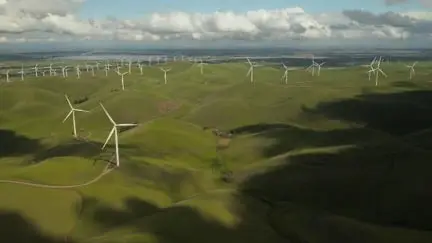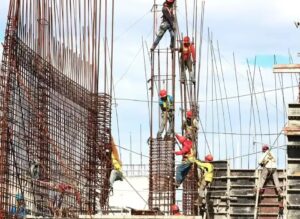By 1977, the United States recognized the need to encourage manufacturers and corporations to reduce their carbon dioxide (CO2) emissions. An increase in pollutants, acid rain, and greenhouse gases threatened ecologies and health worldwide. The hope was that by providing corporations with financial incentives for compliance and stiff penalties for regulatory violations, they would voluntarily reduce their CO2 emissions and find alternative ways to manufacture goods and produce power.
Recently, the U.S. Commodity Futures Trading Commission (CFTC) has stepped up enforcement procedures. As one of its new attempts to curb CO2 emissions, The CFTC is inviting whistleblowers within the industry to step forward and submit tips to the CFTC Whistleblower Office directly. This suggests that the carbon offset market has not lived up to the rosy ideals promised when first offered to the industrial world.
A History of Carbon Offsets
A carbon offset is a credit for emissions reductions. Offset credits can be given to one individual or company and sold or traded to another. Credits are distributed based on the tons of CO2 that an individual or company neutralizes or “offsets” using an alternative action or reduction in emissions. Carbon offset programs can negate the impact of a single individual, or an entire power plant.
Scientists, industrialists, and climatologists have long known that pouring carbon residue into the atmosphere is detrimental to the environment. From the black fogs of 1950s London to the acid rains that devastated the forests of Europe to the fabled Los Angeles smog, the effects are easy to see. What is more difficult is understanding how to do anything about it.
Several methods for decreasing carbon emissions are being utilized around the world, including:
- Forestry and conservation. Replanting, protecting old-growth forests, and conserving green spaces have been beneficial in carbon-offset efforts. While there has been recent evidence that forests are not the CO2 sinks that we once believed they were, they are still beneficial for improving the environment.
- Renewable energy. Decreasing reliance on fossil fuels, particularly in developing nations, reduces emissions globally and increases the profits that nations can return to community projects.
- Community development. Sustainable development has multiple returns. For example, clean water projects mean communities no longer have to burn wood to boil water, which in turn preserves the forests, prevents smoke and carbon emissions, and improves people’s health.
- “Waste to energy” programs. Collecting methane at landfills, feedlots, or sewage treatment plants has proven valuable in nations transitioning from developing to industrial.
The potential benefits of carbon offsets are enormous. Unfortunately, as the road to hell is paved with good intentions, the road to global warming may be paved with carbon offsets.
A Brief History of Carbon Offset Legislation
The Clean Air Act of 1977 was the first legislation to offer “tradable emission offsets.” In essence, a company could increase its own emissions of a chemical if it paid another company to decrease its emissions of the same chemical by a greater amount, creating a net drop in total emissions. This is called “additionality.”
The Kyoto Protocol in 1997 expanded emissions trading and identified specific gases and chemicals to be targeted for reduction. Among them were CO2, methane, hydrofluorocarbons, and sulfur hexafluoride, all of which have been implicated in climate change. Unfortunately, the United States never formally ratified the Kyoto Protocol.
The Paris Agreement in 2015 increased global commitment to reducing carbon emissions and other greenhouse gas pollutants, and to reducing the global temperature increase. The Clean Development Mechanism, a UN-run program, allows developed nations to “sponsor” clean energy programs in developing countries to encourage the reduction of greenhouse emissions.
All these programs and plans sound good, and the benefits to corporations and developing countries cannot be denied. Unfortunately, there were problems from the start.
Quality, Oversight, and Fraud
Determining if carbon offsets work has been problematic from the beginning. First, a company must determine how to measure the net effect of any carbon reductions. To do so, the company needs to calculate its total emissions prior to the proposed project and decide how emissions will be measured once the project commences. Then the company must determine:
- If the offset is required for regulatory reasons, or is financially desirable
- If other companies are claiming the same offset benefit
- If the project will cause higher emissions outside the project footprint
- If the emissions reduction is permanent or reversible
Carbon offset credits are incentives. If a company is required to reduce emissions by law, it cannot claim carbon credits. If the net effect causes more emissions a hundred miles outside the project area, then the project is not reducing emissions. Since the effect of emissions reductions and carbon credit trading cannot be readily assessed by the company performing the trade, the area is ripe for fraud.
Oversight of Carbon Emissions Trading
The CFTC oversees carbon credit trading along with all other futures commodities trading. According to a press release, the carbon offset market is estimated to be worth $2 billion USD and is continuing to grow. The CFTC is responsible for ensuring that manipulation of this lucrative market is reined in and fraudulent practices are flagged for investors. Some of the scams the CFTC has uncovered and continues to monitor include:
- Ghost credits are purchasable offsets that are not genuine carbon offsets. Some “ghost” offsets may exacerbate global warming. The offset broker Verra was recently implicated in such a scam.
- Wash trading is manipulating a commodity to affect the market. Wash trading is done by some brokers in the carbon credit market.
- Double counting is when two companies receive the benefit of a carbon offset without reducing emissions as intended.
The CFTC depends on both its own agents and internal reporting for help. The CFTC Whistleblower Program was created in 2010 to encourage insiders with knowledge of misconduct to come forward and report.
Looking for Help in the Carbon Offset Market
On June 20, 2023, the CFTC Whistleblower Program issued an alert to the general public that explained how to contact their office with information about “violations connected to fraud or manipulation in the carbon markets.” This alert was directed to anyone trading in, having knowledge of, or working with brokers in the carbon offset market. Only individuals can be whistleblowers, companies and business entities don’t qualify.
The Whistleblower Program offers financial incentives for reporting fraud and misconduct, up to 30% of the fines collected by the agency. The size of the potential fines is staggering, in the tens of millions of dollars, so rewards can be substantial.
This is a significant step for the CFTC. Environmental agencies and financial companies alike have been demanding increased regulation against fraud and misconduct in the carbon offset market for quite some time. Investment groups want investors to know their money is safe and goes to the causes they support. Environmental agencies need investors to know that the carbon offset programs are genuine and worthy of support.
Regulation of the Offset Market
The CFTC has the authority to regulate carbon offsets and environmental commodities under the Commodity Exchange Act (CEA). Until now, enforcement has not been overly aggressive, but with this new alert, the CFTC seems to be signaling it intends to investigate misconduct in the environmental market more closely than previously.
There are other agencies that also monitor the carbon offset market. The International Carbon Reduction and Offset Alliance (ICROA) is a voluntary registry organization with eleven corporate members worldwide. It has a troubled history and is not recognized by most national governments.
Carbon Offsetting and Reduction Scheme for International Aviation (CORSIA) is primarily involved in reducing airline emissions. It has been in effect since 2019, and international flights are subject to CORSIA offset obligations and reporting requirements.
The ICROA and CORSIA are voluntary organizations and, as such, do not have the power to implement hard enforcement through fines or sanctions. The CFTC, on the other hand, does have the power to employ hard enforcement in the United States, as well as overseas if Americans are involved or American interests are impacted. However, up until this point, the CFTC has not used its powers aggressively.
In Summary
The carbon offset credit market is projected to grow rapidly over the next thirty years. Both financial groups and environmental agencies will benefit from strong oversight by a regulatory agency that can depend on internal and external reporting of fraud and misuse. The CFTC is positioning itself to be that agency by reaching out to the public via its Whistleblower Office.
Not every failed venture is a scam. Therefore, investors and whistleblowers need a robust enforcement agency that can review all the factors in a case and determine whether it is fraud or just bad timing.
The CFTC’s call for tipsters should be a warning to the entire carbon offset market that there’s a new sheriff in town.
Sources
‘Phantom’ Carbon Offsets Found to Have No Climate Benefit, Impakter
https://impakter.com/phantom-carbon-offsets-found-to-have-no-climate-benefit
The Clean Development Mechanism, UN website
https://unfccc.int/process-and-meetings/the-kyoto-protocol/mechanisms-under-the-kyoto-protocol/the-clean-development-mechanism
What is Additionality? Part 1: A long standing problem, Greenhouse Gas Management Institute, Michael Gillenwater
https://ghginstitute.org/wp-content/uploads/2015/04/AdditionalityPaper_Part-1ver3FINAL.pdf
Help Wanted: CFTC invites whistleblowers to look for fraud and manipulation in the carbon markets, JD Supra https://www.jdsupra.com/legalnews/help-wanted-cftc-invites-whistleblowers-7496688/





